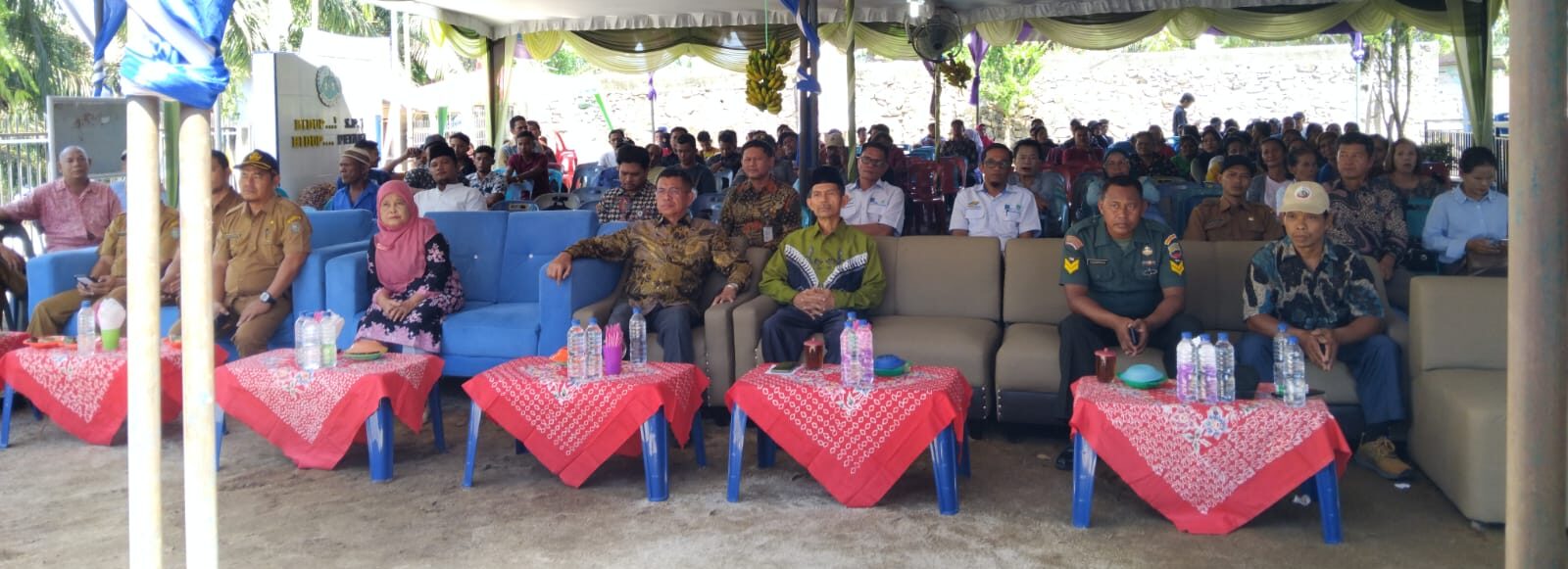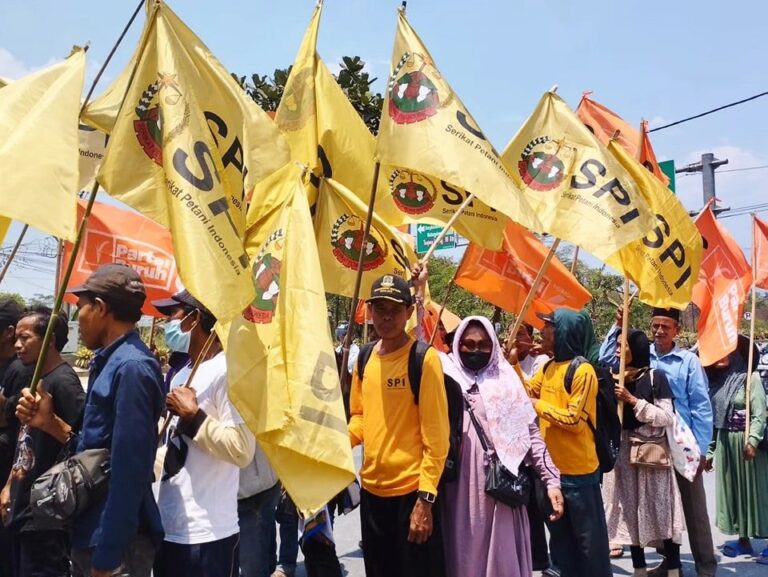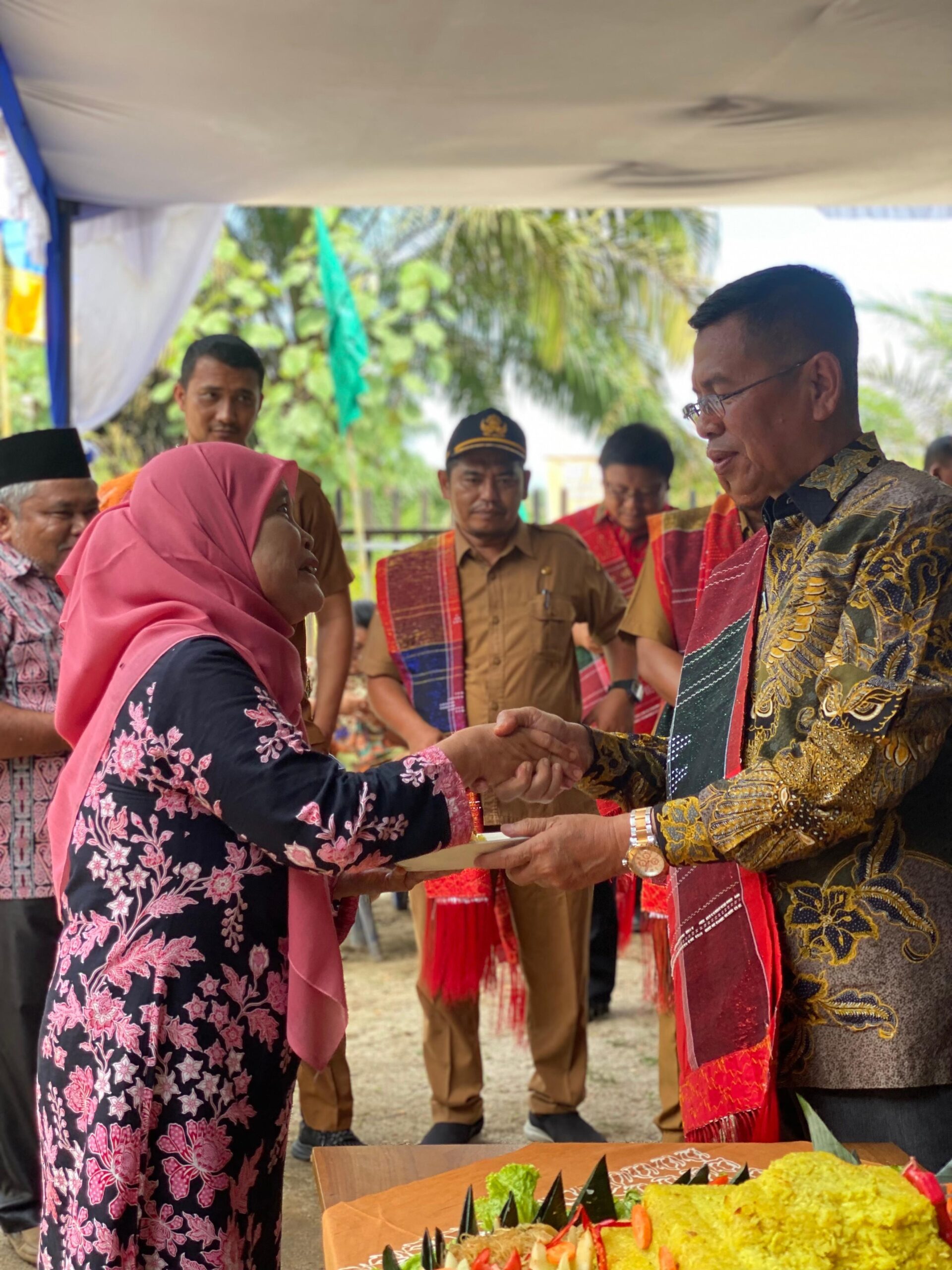North Sumatra Province – Last June, members of the Indonesian Peasant Union (SPI) in Sei Kopas village, Asahan Regency, North Sumatra, inaugurated a new oil palm plantation cooperative. The inauguration, which coincided with the 19th anniversary of the union’s Simpang Kopas base, attracted a wide range of stakeholders, from government agencies to local cooperatives.
Dignitaries including representatives from the Ministry of Agriculture of the Republic of Indonesia, the Cooperative SME Working Capital Management Agency (LPDB), and agricultural research institutions attended the event. Officials from the Regional Bureau of Agrarian Affairs and Land Management/National Land Agency of North Sumatra Province also participated, emphasizing the importance of this cooperative initiative in advancing agrarian reforms and rural development.
Zubaidah, Chairman of the North Sumatra Regional Council (DPW) of the SPI, highlighted the essential role of farmers in achieving collective prosperity and called for enhanced collaboration between the government and the SPI.
“The SPI Oil Palm Cooperative represents 19 years of perseverance and dedication by the farmers of Simpang Kopas. Without their tireless efforts, we would not be where we are today. It is because of their work that our communities thrive,” she said, highlighting the cooperative’s role in strengthening local economies and reducing unemployment.
The importance of the cooperative goes beyond economic benefits: it serves as a model for land reform. Rois Regen Tarigan, coordinator of the land reform division of the BPN/ATR regional office in North Sumatra, presented projects for the redistribution and certification of collective land in the village of Simpang Kopas, emphasizing the central role of the cooperative in community land management.
“At Simpang Kopas, we seek to redistribute and certify land collectively, ensuring joint ownership and management by local farmers. This initiative aims to empower farmers economically and sustainably,” Rois explained, reflecting the cooperative’s commitment to equitable land use and environmental stewardship.
Arief Hartanto, Director of the Directorate General of Plantations at the Ministry of Agriculture, highlighted the cooperative’s role in strengthening Indonesia’s palm oil industry. He commended SPI’s efforts in promoting smallholder rejuvenation programs and improving agricultural productivity through cooperative initiatives.
“The SPI Oil Palm Cooperative plays a crucial role in the development of our palm oil sector. Through initiatives such as the Smallholder Rejuvenation Programme (SRP), we seek to optimise palm oil production while supporting farmers’ livelihoods,” Arief said, highlighting the cooperative’s critical role in sustainable agricultural practices and economic empowerment.
Local government officials also expressed their strong support for the cooperative’s efforts. Donal Nadapdap, village head of Simpang Kopas, expressed optimism about the cooperative’s potential to improve local communities and spur economic growth.
“The inauguration of the SPI Oil Palm Plantation Cooperative is a milestone for the village of Sei Kopas. We believe that this cooperative will foster economic resilience and create employment opportunities, thereby promoting prosperity in our community,” said Donal, highlighting the cooperative’s role in local development.
Suratno, head of the infrastructure and extension division at the Asahan district agriculture office, affirmed his department’s commitment to providing necessary support and guidance to the cooperative.
“We are ready to collaborate with the SPI Oil Palm Plantation Cooperative in Asahan Regency. Cooperatives play a vital role in strengthening the economic position of farmers and promoting sustainable agricultural practices,” Suratno stressed, highlighting the cooperative’s potential to empower farmers through knowledge sharing and capacity building.
Henry Saragih, President of SPI, spoke about the cooperative’s journey and its central role in advocating for agrarian reform and food sovereignty. He highlighted SPI’s commitment to promoting cooperatives as vehicles for economic empowerment and sustainable development in rural communities.

“The SPI Oil Palm Cooperative exemplifies our commitment to empowering farmers economically and environmentally. Our cooperative movement aims to strengthen farmers’ sovereignty in their economic activities, promoting diversified agricultural practices and sustainable development,” Henry explained, highlighting SPI’s holistic approach to agricultural transformation.
The inauguration concluded with a commitment to continue advancing cooperative initiatives and championing fair agricultural practices. Binsar Daniel Manurung, chair of the inauguration committee, expressed optimism about the future of the cooperative and called for continued support from local and regional authorities.
“As we celebrate this milestone, let us commit to supporting and growing the SPI Oil Palm Cooperative. With the support of the government and the community, we can ensure its longevity and impact on improving the livelihoods of farmers,” Binsar said, echoing the cooperative’s commitment to sustainable development and community prosperity.

For more information, visit the SPI website.
This item is also available in %s.



